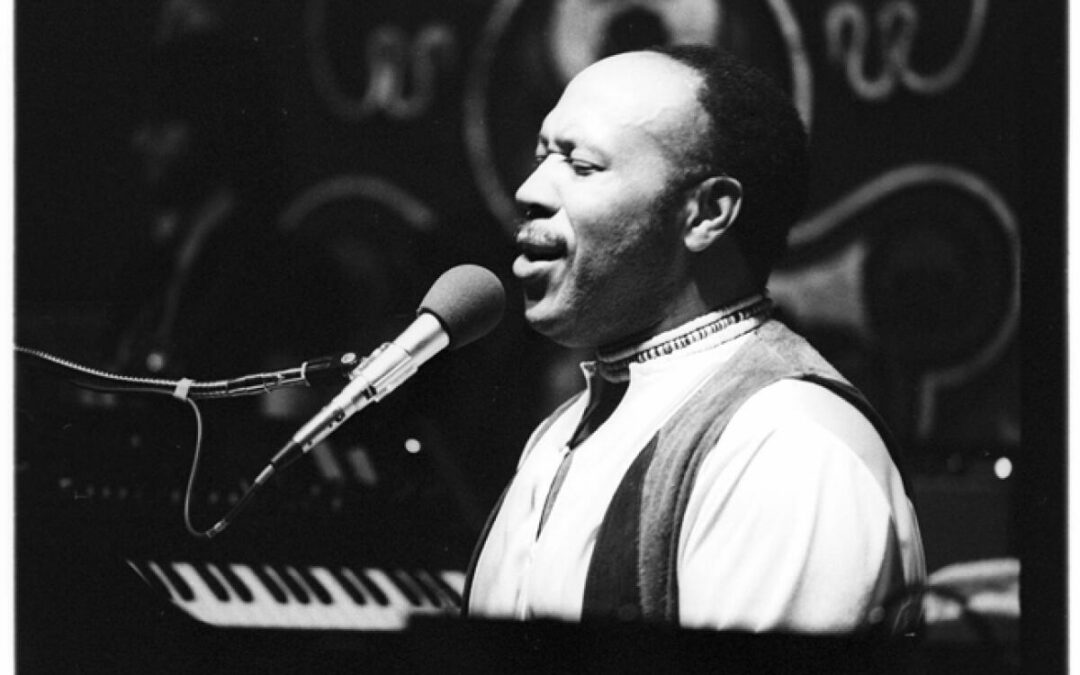The legendary jazz musician Les McCann, whose compositions were sampled by numerous hip-hop musicians such as Notorious B.I.G. and Dr. Dre, passed away on Friday in the Los Angeles region. He was eighty-eight.
The artist, whose career included more than 60 albums, was diagnosed with pneumonia and admitted to a nearby hospital from the assisted living facility where he had spent the previous four years, according to his manager Alan Abrahams, who spoke with The Hollywood Reporter.

Despite having a long career, he was most renowned for performing the protest song “Compared to What” at the 1969 Montreaux Jazz Festival.
McCann teamed up with trumpeter Benny Bailey and saxophonist Eddie Harris. The New York Times claims that the three had never performed together and that there was no time for practice.

According to the site, McCann wrote, “Just before we went onstage, and for the first time in my life, I smoked some hash.” in the liner notes for a reissue of the concert record Swiss Movement, which is nominated for a Grammy. .. [Onstage] I had no idea where I was in the world. I was really lost. It’s okay, man, go play! urged the other guys. Everything simply took off after I managed to gather myself somehow.
READ MORE: Suge Knight Asserts That Eazy-E’s Widow Lost Millions Of Dollars On A Substandard Dr. Dre Deal
The largely self-taught pianist, who was born in 1935 in Lexington, Kentucky, had participated in high school band as a sousaphone player before enlisting in the Navy at the age of 17.
In an interview with the Oxford American in 2017, McCann stated, “I wanted to go to the Navy School of Music.” “In high school, my school received any leftover instruments that the other schools did not want when the district distributed instruments. I thus performed on the sousaphone, a large trumpet in the band’s rear. I played it during the last two years of my education, but I only learned that nobody else used it after I entered the Navy. (They are now present in all marching bands.) So they sent me to take an exam in Cincinnati. I remarked, “Wait a minute, this is not what I play,” as they pulled out a tuba. “This is all we use,” they declared. “Please do not send me back to Lexington,” I pleaded.
He took first place in a talent competition while serving in the Navy, which led to an appearance on the Ed Sullivan Show. In Los Angeles, he started a trio after being released from prison. After hearing him perform in a nightclub, Miles Davis put him in touch with Pacific Jazz in 1960, which led to his first job.
The Oxford American was informed by McCann that Davis had approached him and said, “The big names had already played, so I started playing. When I got offstage, Miles came over to me and asked, ‘How come you didn’t play when I was up there?'” I was unable to even talk. My favorite musician of all time was him. “Man, I like the way you play—very soulful,” he remarked.
READ MORE: Warren G Says He Had A Chance To Defuse 2Pac & Biggie Beef Once
In 1968, he joined with Atlantic after learning about Roberta Flack, who had also signed with the company.
In the liner notes for First Take, McCann wrote, “Her voice touched, tapped, trapped and kicked every emotion I’ve ever known.” “She was the only one with the voice. I cried, laughed, and screamed for more.”

He had a stroke while playing on stage in Germany in the middle of the 1990s, leaving him in a wheelchair, but he was eventually able to resume his career.
Since hundreds of hip-hop musicians, including Notorious B.I.G., Warren G, Slick Rick, Dr. Dre, Mobb Deep, A Tribe Called Quest, De La Soul, and Naughty By Nature, have sampled his music, his work has gained attention from a new generation of listeners.
Les McCann — Never a Dull Moment, his previous album The previously unheard collection of live recordings, Live From Coast to Coast 1966-1977, was published on December 1, 2023. It features performances from the Village Vanguard in 1967 and Seattle’s Penthouse jazz club in 1966 featuring Stan Gilbert.
Apart from his musical career, he also traveled and took pictures, which were eventually published in the book Invitation to Openness: The Jazz and Soul Photography of Les McCann 1960-1980, published in 2015.
Radiant and America Nu, offering to elevate your entertainment game! Movies, TV series, exclusive interviews, music, and more—download now on various devices, including iPhones, Androids, smart TVs, Apple TV, Fire Stick, and more.



